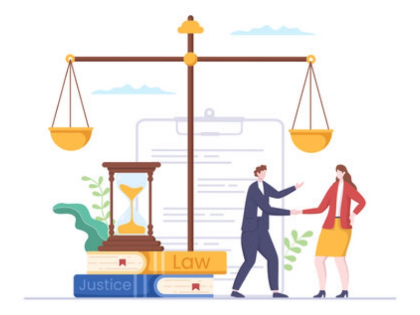Loans' Impact on Your Financial Well-Being
One important component of loan affordability is interest rates. Borrowing is simpler while interest rates are low, but savings become more costly when they rise.
When used for debt consolidation, personal loans can be a useful instrument for consolidating many credit card accounts into one easier-to-manage payment. Additionally, they aid in raising a borrower's credit rating.
Excessive expenditure

Spending too much around the holidays, making impulsive purchases, or just going over your income can all have a negative impact on your financial situation. It may result in debt, poor financial flow, and an ongoing fight to achieve your objectives.
There are numerous strategies to end the spending pattern. Establishing financial objectives and making a budget that supports them is one tactic. Another is to look for non-financial alternatives to satisfy your emotional wants and desires.
Overspending on non-essential purchases can upset the finances of many households. But the additional money you spend on movie tickets and iced coffees could be invested in retirement accounts or used to pay off debt. Living within your means can be made simpler by putting the appropriate financial tools and techniques in place. It can also assist you in achieving goals like home savings, retirement savings, or educational savings.
Use of Tobacco and Alcohol

Alcohol and tobacco use decreases the effectiveness of antismoking medications and raises the risk of health issues such as cardiovascular disease and mouth and esophageal cancer. Financial stress is also more common among smokers and drinkers than it is among non-smokers.
The cross-sectional form of this study makes it more difficult to determine causality or validate any chronological order of events. Additionally, the information on smoking and alcohol consumption was self-reported.
Higher monthly personal income and less dependency on credit were linked to decreased probabilities of co-using alcohol and tobacco, according to univariate analysis. Concurrent use of both substances was linked to a number of other variables, including age, gender, marital status, education level, and the results of the Fagerstrom test for nicotine dependence, cigarettes per day, smoking self-efficacy, and prior stop efforts. However, further studies should look into any correlations between other forms of alcohol and tobacco use. Furthermore, probability-sampled longitudinal studies are crucial to comprehending the underlying processes of this association.
Stress related to money

One's physical and emotional well-being might be negatively impacted by money problems. They can worsen pain, disrupt sleep, hinder creativity and productivity, raise the risk of depression and anxiety, and encourage unhealthy coping mechanisms like drug or alcohol addiction or gambling. They can also worsen sleep quality and intensify disagreements with family and friends.
Unpaid debts, job insecurity or loss, economic hardships, and taking on more obligations like taking care of elderly parents or children can all be sources of financial stress. According to the results of our 2021 Coronavirus Financial Impact Survey, people who are financially secure report better mental health than those who are not.
The good news is that community resources, financial consultants, and therapists or counselors who specialize in this field can all help reduce financial stress. It's also critical to establish and follow a plan to deal with your unique financial challenges. This could entail sticking to a spending plan, reducing debt, avoiding impulsive purchases, or obtaining a second source of income.
Negative Behaviors

Stress related to money frequently results in bad habits like smoking and drinking too much. It may also result in unhealthy eating patterns that compromise a person's general well-being. Individuals who battle debt and other financial concerns are more vulnerable to mental health conditions such as persistent stress, despair, and anxiety.
If you want to increase your financial wellbeing, you must kick negative behaviors and develop good ones. Developing and adhering to a budget, setting aside money for future objectives, and maintaining a debt repayment plan are all proactive measures that contribute to financial stability. Moreover, maintaining a good credit score involves paying off debt, avoiding overspending, and paying bills on time.
It takes perseverance and regular attention to attain financial health. But you don't need to work by yourself. You can consult a financial advisor or even go to a psychologist for assistance. It's evident that a person's financial and mental health are related; therefore, it's critical to maintain your course throughout time.









